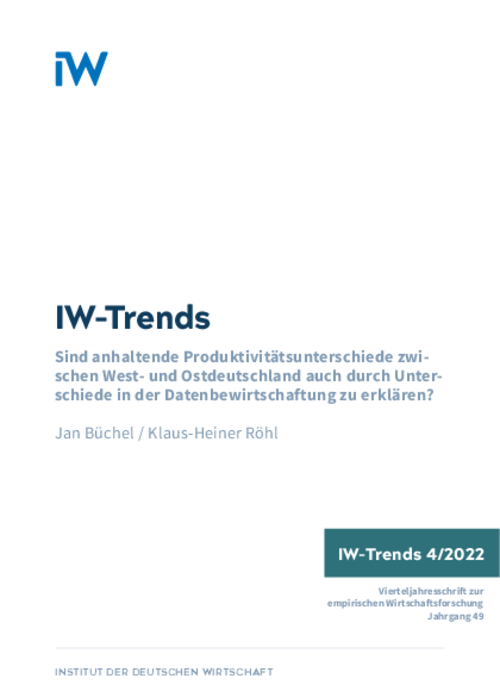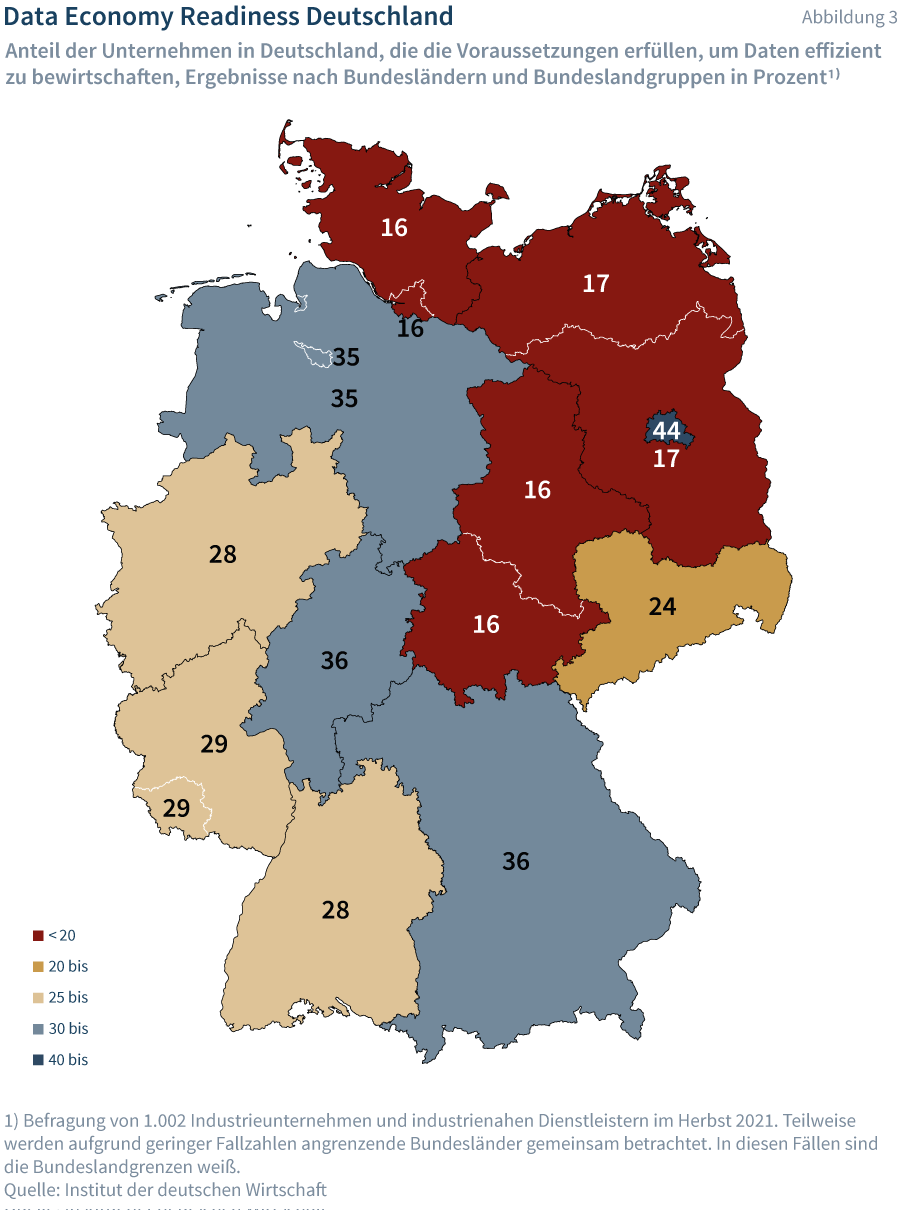Since the mid-1990s the economies of the five states of ex-communist Eastern Germany have been converging only slowly with the rest of the Republic, though the process has not come to a complete halt.

Do Differences in Data Management Help to Explain Persistent Productivity Differences Between Western and Eastern Germany?

Since the mid-1990s the economies of the five states of ex-communist Eastern Germany have been converging only slowly with the rest of the Republic, though the process has not come to a complete halt.
By 2021, the German Economic Institute’s IW Index of German Unity, a composite of seven economic indicators, showed that Eastern Germany had reached 78 per cent of the Western German average. A major obstacle to progress appears to be the stalling in the convergence of capital endowment and corporate R&D personnel. The following article examines the extent to which differences in how companies in the two parts of the country use and manage their data might be contributing to the persistent productivity differences between Eastern and Western Germany. With exception of the city state of Berlin, the eastern states are still ill-prepared for participation in the digital economy, with broadband availability, a prerequisite for digital applications, well below the national average. With weaker investment, the unfavourable demographics of a generally older workforce and a preponderance of small- and medium-sized enterprises, it is clear that Eastern Germany will require special assistance in the digitalisation of its economy. In addition, recent decisions by leading companies in the data economy to establish a presence in Eastern Germany may have a positive effect on the future convergence process.


Do Differences in Data Management Help to Explain Persistent Productivity Differences Between Western and Eastern Germany?

More on the topic

Challenges for the debt brake
In 2019, Bardt et al. (2019) initially presented a comprehensive estimate of the unmet public investment needs in Germany not covered in household planning at the time, totaling around €460 billion over ten years.
IW
Tailoring the Truth: evidence on parliamentarians’ responsiveness and misinformation toleration from a field experiment
The rise of populist radical right parties (PRRPs) is largely seen to have been triggered by a dealignment between voters and political elites and to have triggered an increasing supply of misinformation.
IW